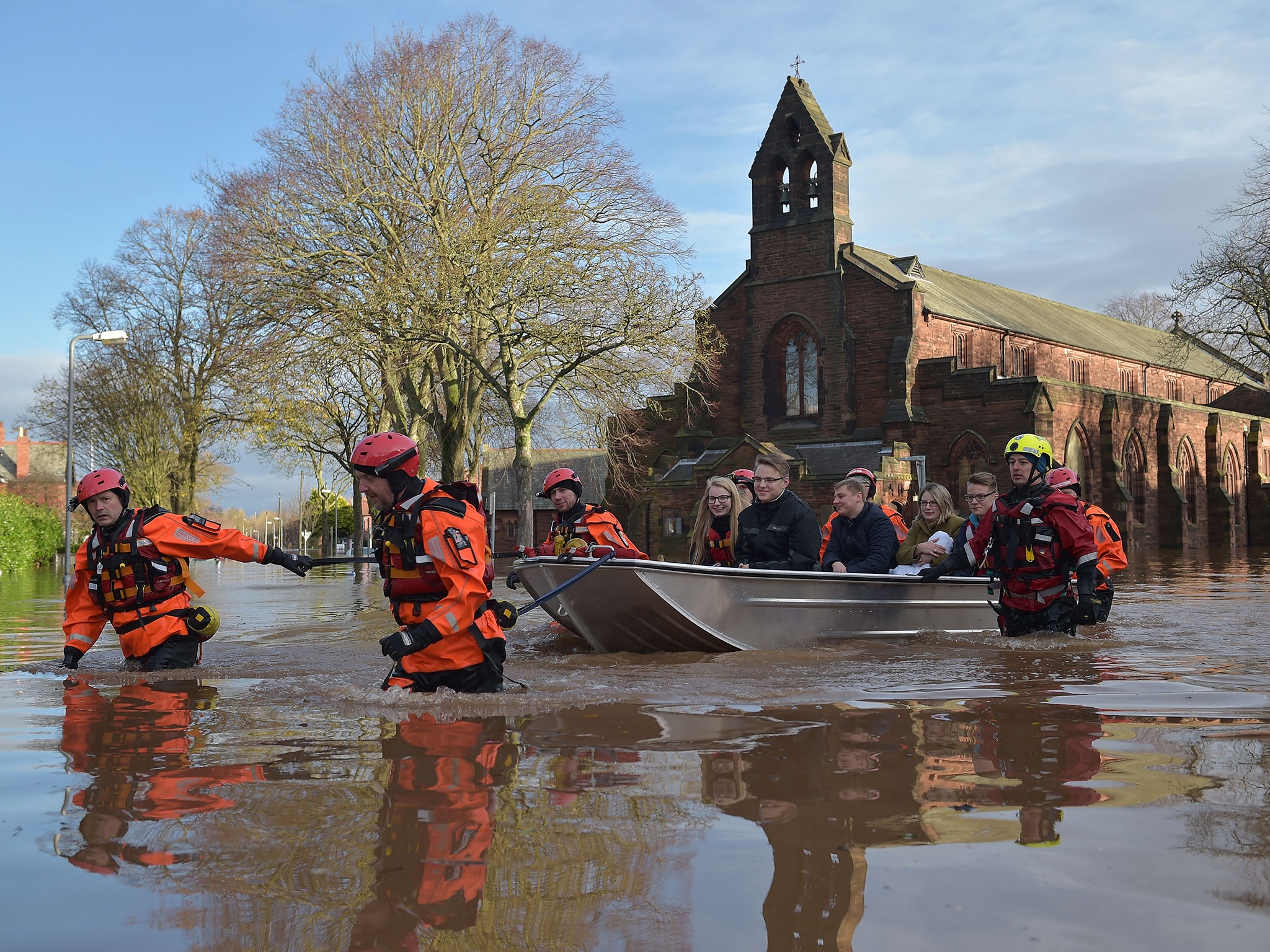Nature Studies: The Cumbrian floods were unprecedented, but not unpredictable
Have you noticed, watching the news over the past decade, how the 200-year-events are starting to mount up?

Welcome to the future, everybody. “Unprecedented” is a much overused word; it is often intended to just mean “unusual”. But its use for the rainfall which so dramatically washed out the Lake District and much of Cumbria at the weekend seems, for once, entirely appropriate: in Britain, in our experience, there has never been rain like it.
The previous heaviest precipitation in a 24-hour period in the UK was recorded six years ago at Seathwaite in Borrowdale, in the Lake District’s rainy heartland: between 19 and 20 November 2009, 314mm (12.36 inches) of rain fell on Seathwaite Fell. But over last Friday and Saturday, 342mm (13.46 inches) fell on the Honister Pass, three-and-a-half miles away.
A foot of rain, and more, in a day; these are figures that we normally associate with tropical cyclones. In 2009, a scarcely-believable record is set; and just six years later it is smashed by a large margin. You wouldn’t be normal if you didn’t think that something unusual was happening to rainfall in the UK. And something is: it is indeed getting heavier and heavier.
Yet it still has not entered the public consciousness that this is entirely expected, and what we are witnessing is the predicted arrival of our future thanks to climate change. Since the late 1990s, when the first assessments were carried out of the possible impacts of global warming on Britain specifically (as opposed to the Earth as a whole), it has been clear that the most damaging effects on these islands will very probably not be blistering droughts, but more violent downpours.
The basic scientific reason is simple: a warming atmosphere holds more moisture. The reason the public as a whole has not really woken up to the connection lies with the issue of attribution. It is very hard to attribute a single weather event – no matter how extreme – directly, and with confidence, to man-made climate change. This is because the natural variability of the weather is so enormous that even the worst of it can sometimes naturally occur, as a “200-year-event”, say: something that would be likely to happen only once every two centuries.
But have you noticed, watching the news over the past decade, how the 200-year-events are starting to mount up?
Two patterns concerning the likelihood of extreme rainfall and flooding in Britain as a result of climate change should by now have penetrated the minds of the public, though they have not yet done so: a pattern of predictions, and a pattern of events.
Since 1999, scientific opinion has focused on heavier rain as our principal global warming impact, and a number of more detailed reports have fleshed this out and warned of the dangers, with two in particular very noteworthy: the Government Foresight report on Future Flooding of 2004, and the Climate Change Risk Assessment of 2012. This latter report, in particular, is important because it looked at more than 100 separate risks to the UK from a warming atmosphere, from droughts to diseases, and concluded that flooding caused by heavier rainfall would be the most significant threat of all.
The pattern of events is more dramatic still. For most of the second half of the 20th century there was little serious flooding in Britain, but beginning with the floods in the Midlands of Easter 1998, affecting towns from Northampton to Leamington Spa, which took everyone by surprise and in which five people died, there has been a staggering increase in unusually severe floods caused by extreme rainfall. They range from the floods of autumn 2000, which were then the worst to date, to the summer floods of 2007 which were worse, and the winter floods of 2012-13, to the astonishing inundations we are experiencing at the moment.
No one is likely to attribute any of these directly to climate change just yet. But as the UN negotiations in Paris continue this week to try to find a solution to our rapidly warming world, what we can say with confidence is that they are all entirely consistent with predictions of what will happen to the UK.
Yes, welcome to the future of Britain, ladies and gentlemen. It’s very, very wet.
Join our commenting forum
Join thought-provoking conversations, follow other Independent readers and see their replies
Comments
Bookmark popover
Removed from bookmarks